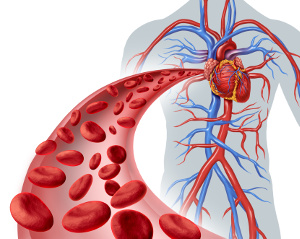afterLoad (455.7KB) (525μs)
afterInitialise (1.27MB) (50.25ms)
afterRoute (827.11KB) (27.38ms)
beforeRenderComponent com_content (35.2KB) (271μs)
Before Access::preloadComponents (all components) (67.27KB) (4.16ms)
After Access::preloadComponents (all components) (98.07KB) (2.84ms)
Before Access::preloadPermissions (com_content) (1.6KB) (14μs)
After Access::preloadPermissions (com_content) (3.29MB) (20.78ms)
Before Access::getAssetRules (id:62 name:com_content.category.20) (130.65KB) (96μs)
After Access::getAssetRules (id:62 name:com_content.category.20) (7.38KB) (49μs)
Before Access::getAssetRules (id:8 name:com_content) (52.23KB) (56.12ms)
After Access::getAssetRules (id:8 name:com_content) (6.17KB) (28μs)
afterRenderComponent com_content (1.49MB) (361ms)
afterDispatch (52.92KB) (3.74ms)
beforeRenderRawModule mod_articles_category (READ MORE...) (397.41KB) (15.37ms)
afterRenderRawModule mod_articles_category (READ MORE...) (65.52KB) (263ms)
beforeRenderRawModule mod_custom (BOOST YOUR IMMUNE DEFENSE) (6.45KB) (35μs)
afterRenderRawModule mod_custom (BOOST YOUR IMMUNE DEFENSE) (4.42KB) (232μs)
beforeRenderRawModule mod_articles_latest (Latest news) (976B) (15μs)
afterRenderRawModule mod_articles_latest (Latest news) (23.86KB) (227ms)
beforeRenderRawModule mod_tags_popular (Search) (2.09KB) (20μs)
afterRenderRawModule mod_tags_popular (Search) (28.01KB) (92.83ms)
beforeRenderRawModule mod_custom (the Vitamin and Mineral Guide) (960B) (28μs)
afterRenderRawModule mod_custom (the Vitamin and Mineral Guide) (1.02KB) (46μs)
beforeRenderRawModule mod_custom (Weight loss that works) (736B) (12μs)
afterRenderRawModule mod_custom (Weight loss that works) (928B) (22μs)
beforeRenderRawModule mod_custom (Get additionel and more detailed knowledge ) (752B) (10μs)
afterRenderRawModule mod_custom (Get additionel and more detailed knowledge ) (944B) (18μs)
beforeRenderRawModule mod_custom (Q10 goes by many names) (736B) (9μs)
afterRenderRawModule mod_custom (Q10 goes by many names) (928B) (18μs)
beforeRenderRawModule mod_custom (Check this before you buy a Q10 product) (752B) (9μs)
afterRenderRawModule mod_custom (Check this before you buy a Q10 product) (944B) (18μs)
beforeRenderRawModule mod_custom (Are you taking supplements) (736B) (8μs)
afterRenderRawModule mod_custom (Are you taking supplements) (2.28KB) (18μs)
beforeRenderRawModule mod_custom (Antiaging) (720B) (10μs)
afterRenderRawModule mod_custom (Antiaging) (912B) (16μs)
beforeRenderRawModule mod_custom (Exercise) (720B) (9μs)
afterRenderRawModule mod_custom (Exercise) (912B) (18μs)
beforeRenderRawModule mod_custom (Useful Links) (720B) (13μs)
afterRenderRawModule mod_custom (Useful Links) (1.02KB) (18μs)
beforeRenderModule mod_articles_category (READ MORE...) (268.2KB) (2.13ms)
afterRenderModule mod_articles_category (READ MORE...) (1.25KB) (57μs)
beforeRenderModule mod_custom (BOOST YOUR IMMUNE DEFENSE) (6.81KB) (15μs)
afterRenderModule mod_custom (BOOST YOUR IMMUNE DEFENSE) (1.28KB) (27μs)
beforeRenderModule mod_articles_latest (Latest news) (592B) (11μs)
afterRenderModule mod_articles_latest (Latest news) (1.27KB) (22μs)
beforeRenderModule mod_tags_popular (Search) (1.73KB) (11μs)
afterRenderModule mod_tags_popular (Search) (1.27KB) (20μs)
beforeRenderModule mod_custom (the Vitamin and Mineral Guide) (1.31KB) (9μs)
afterRenderModule mod_custom (the Vitamin and Mineral Guide) (1.28KB) (19μs)
beforeRenderModule mod_custom (Weight loss that works) (336B) (9μs)
afterRenderModule mod_custom (Weight loss that works) (1.27KB) (18μs)
beforeRenderModule mod_custom (Get additionel and more detailed knowledge ) (368B) (9μs)
afterRenderModule mod_custom (Get additionel and more detailed knowledge ) (1.3KB) (19μs)
beforeRenderModule mod_custom (Q10 goes by many names) (336B) (9μs)
afterRenderModule mod_custom (Q10 goes by many names) (1.27KB) (28μs)
beforeRenderModule mod_custom (Check this before you buy a Q10 product) (352B) (10μs)
afterRenderModule mod_custom (Check this before you buy a Q10 product) (1.28KB) (21μs)
beforeRenderModule mod_custom (Are you taking supplements) (352B) (8μs)
afterRenderModule mod_custom (Are you taking supplements) (1.28KB) (19μs)
beforeRenderModule mod_custom (Antiaging) (336B) (8μs)
afterRenderModule mod_custom (Antiaging) (1.27KB) (19μs)
beforeRenderModule mod_custom (Exercise) (336B) (9μs)
afterRenderModule mod_custom (Exercise) (1.25KB) (40μs)
beforeRenderModule mod_custom (Useful Links) (336B) (10μs)
afterRenderModule mod_custom (Useful Links) (3.77KB) (22μs)
beforeRenderRawModule mod_menu (Main Menu - English) (37.51KB) (745μs)
afterRenderRawModule mod_menu (Main Menu - English) (190.16KB) (1.52ms)
beforeRenderModule mod_menu (Main Menu - English) (720B) (5μs)
afterRenderModule mod_menu (Main Menu - English) (4.86KB) (51μs)
beforeRenderRawModule mod_languages (Sprogskift) (3.94KB) (17μs)
afterRenderRawModule mod_languages (Sprogskift) (17.95KB) (976μs)
beforeRenderModule mod_languages (Sprogskift) (720B) (4μs)
afterRenderModule mod_languages (Sprogskift) (5.31KB) (19μs)
beforeRenderRawModule mod_finder () (6.34KB) (9μs)
afterRenderRawModule mod_finder () (119.39KB) (1.63ms)
beforeRenderModule mod_finder () (704B) (5μs)
afterRenderModule mod_finder () (3.29KB) (34μs)
beforeRenderRawModule mod_custom () (6.62KB) (140μs)
afterRenderRawModule mod_custom () (30.89KB) (886μs)
beforeRenderModule mod_custom () (704B) (6μs)
afterRenderModule mod_custom () (1.23KB) (48μs)
beforeRenderRawModule mod_menu (Main Menu - English) (5.07KB) (126μs)
afterRenderRawModule mod_menu (Main Menu - English) (6.3KB) (761μs)
beforeRenderModule mod_menu (Main Menu - English) (720B) (4μs)
afterRenderModule mod_menu (Main Menu - English) (1.25KB) (43μs)
beforeRenderRawModule mod_languages (Sprogskift Mobil) (912B) (18μs)
afterRenderRawModule mod_languages (Sprogskift Mobil) (3.89KB) (632μs)
beforeRenderModule mod_languages (Sprogskift Mobil) (720B) (4μs)
afterRenderModule mod_languages (Sprogskift Mobil) (1.27KB) (28μs)
beforeRenderRawModule mod_finder () (2.3KB) (8μs)
afterRenderRawModule mod_finder () (6.29KB) (542μs)
beforeRenderModule mod_finder () (704B) (4μs)
afterRenderModule mod_finder () (1.23KB) (43μs)
beforeRenderRawModule mod_custom () (8.66KB) (180μs)
afterRenderRawModule mod_custom () (904B) (132μs)
beforeRenderModule mod_custom () (704B) (3μs)
afterRenderModule mod_custom () (2.43KB) (23μs)
beforeRenderRawModule mod_custom () (688B) (81μs)
afterRenderRawModule mod_custom () (896B) (93μs)
beforeRenderModule mod_custom () (704B) (3μs)
afterRenderModule mod_custom () (2.71KB) (29μs)
afterRender (305.65KB) (6.59ms)
| 1 x afterRenderComponent com_content (1.49MB) (31.56%) | 360.91ms |
| 1 x afterRenderRawModule mod_articles_category (READ MORE...) (65.52KB) (22.97%) | 262.70ms |
| 1 x afterRenderRawModule mod_articles_latest (Latest news) (23.86KB) (19.81%) | 226.58ms |
| 1 x afterRenderRawModule mod_tags_popular (Search) (28.01KB) (8.12%) | 92.83ms |
| 1 x Before Access::getAssetRules (id:8 name:com_content) (52.23KB) (4.91%) | 56.12ms |
| 1 x afterInitialise (1.27MB) (4.39%) | 50.25ms |
| 1 x afterRoute (827.11KB) (2.39%) | 27.38ms |
| 1 x After Access::preloadPermissions (com_content) (3.29MB) (1.82%) | 20.78ms |
| 1 x beforeRenderRawModule mod_articles_category (READ MORE...) (397.41KB) (1.34%) | 15.37ms |
| 1 x afterRender (305.65KB) (0.58%) | 6.59ms |
| 1 x Before Access::preloadComponents (all components) (67.27KB) (0.36%) | 4.16ms |
| 1 x afterDispatch (52.92KB) (0.33%) | 3.74ms |
| 1 x After Access::preloadComponents (all components) (98.07KB) (0.25%) | 2.84ms |
| 1 x beforeRenderModule mod_articles_category (READ MORE...) (268.2KB) (0.19%) | 2.13ms |
| 1 x afterRenderRawModule mod_finder () (119.39KB) (0.14%) | 1.63ms |
| 1 x afterRenderRawModule mod_menu (Main Menu - English) (190.16KB) (0.13%) | 1.52ms |
| 1 x afterRenderRawModule mod_languages (Sprogskift) (17.95KB) (0.09%) | 976μs |
| 1 x afterRenderRawModule mod_custom () (30.89KB) (0.08%) | 886μs |
| 1 x afterRenderRawModule mod_menu (Main Menu - English) (6.3KB) (0.07%) | 761μs |
| 1 x beforeRenderRawModule mod_menu (Main Menu - English) (37.51KB) (0.07%) | 745μs |
| 1 x afterRenderRawModule mod_languages (Sprogskift Mobil) (3.89KB) (0.06%) | 632μs |
| 1 x afterRenderRawModule mod_finder () (6.29KB) (0.05%) | 542μs |
| 1 x afterLoad (455.7KB) (0.05%) | 525μs |
| 1 x beforeRenderComponent com_content (35.2KB) (0.02%) | 271μs |
| 1 x afterRenderRawModule mod_custom (BOOST YOUR IMMUNE DEFENSE) (4.42KB) (0.02%) | 232μs |
| 1 x beforeRenderRawModule mod_custom () (8.66KB) (0.02%) | 180μs |
| 1 x beforeRenderRawModule mod_custom () (6.62KB) (0.01%) | 140μs |
| 1 x afterRenderRawModule mod_custom () (904B) (0.01%) | 132μs |
| 1 x beforeRenderRawModule mod_menu (Main Menu - English) (5.07KB) (0.01%) | 126μs |
| 1 x Before Access::getAssetRules (id:62 name:com_content.category.20) (130.65KB) (0.01%) | 96μs |
| 1 x afterRenderRawModule mod_custom () (896B) (0.01%) | 93μs |
| 1 x beforeRenderRawModule mod_custom () (688B) (0.01%) | 81μs |
| 1 x afterRenderModule mod_articles_category (READ MORE...) (1.25KB) (0%) | 57μs |
| 1 x afterRenderModule mod_menu (Main Menu - English) (4.86KB) (0%) | 51μs |
| 1 x After Access::getAssetRules (id:62 name:com_content.category.20) (7.38KB) (0%) | 49μs |
| 1 x afterRenderModule mod_custom () (1.23KB) (0%) | 48μs |
| 1 x afterRenderRawModule mod_custom (the Vitamin and Mineral Guide) (1.02KB) (0%) | 46μs |
| 1 x afterRenderModule mod_menu (Main Menu - English) (1.25KB) (0%) | 43μs |
| 1 x afterRenderModule mod_finder () (1.23KB) (0%) | 43μs |
| 1 x afterRenderModule mod_custom (Exercise) (1.25KB) (0%) | 40μs |
| 1 x beforeRenderRawModule mod_custom (BOOST YOUR IMMUNE DEFENSE) (6.45KB) (0%) | 35μs |
| 1 x afterRenderModule mod_finder () (3.29KB) (0%) | 34μs |
| 1 x afterRenderModule mod_custom () (2.71KB) (0%) | 29μs |
| 1 x afterRenderModule mod_custom (Q10 goes by many names) (1.27KB) (0%) | 28μs |
| 1 x After Access::getAssetRules (id:8 name:com_content) (6.17KB) (0%) | 28μs |
| 1 x beforeRenderRawModule mod_custom (the Vitamin and Mineral Guide) (960B) (0%) | 28μs |
| 1 x afterRenderModule mod_languages (Sprogskift Mobil) (1.27KB) (0%) | 28μs |
| 1 x afterRenderModule mod_custom (BOOST YOUR IMMUNE DEFENSE) (1.28KB) (0%) | 27μs |
| 1 x afterRenderModule mod_custom () (2.43KB) (0%) | 23μs |
| 1 x afterRenderRawModule mod_custom (Weight loss that works) (928B) (0%) | 22μs |
| 1 x afterRenderModule mod_articles_latest (Latest news) (1.27KB) (0%) | 22μs |
| 1 x afterRenderModule mod_custom (Useful Links) (3.77KB) (0%) | 22μs |
| 1 x afterRenderModule mod_custom (Check this before you buy a Q10 product) (1.28KB) (0%) | 21μs |
| 1 x beforeRenderRawModule mod_tags_popular (Search) (2.09KB) (0%) | 20μs |
| 1 x afterRenderModule mod_tags_popular (Search) (1.27KB) (0%) | 20μs |
| 1 x afterRenderModule mod_custom (the Vitamin and Mineral Guide) (1.28KB) (0%) | 19μs |
| 1 x afterRenderModule mod_custom (Get additionel and more detailed knowledge ) (1.3KB) (0%) | 19μs |
| 1 x afterRenderModule mod_custom (Are you taking supplements) (1.28KB) (0%) | 19μs |
| 1 x afterRenderModule mod_languages (Sprogskift) (5.31KB) (0%) | 19μs |
| 1 x afterRenderModule mod_custom (Antiaging) (1.27KB) (0%) | 19μs |
| 1 x afterRenderRawModule mod_custom (Get additionel and more detailed knowledge ) (944B) (0%) | 18μs |
| 1 x afterRenderRawModule mod_custom (Are you taking supplements) (2.28KB) (0%) | 18μs |
| 1 x afterRenderRawModule mod_custom (Exercise) (912B) (0%) | 18μs |
| 1 x afterRenderRawModule mod_custom (Useful Links) (1.02KB) (0%) | 18μs |
| 1 x afterRenderRawModule mod_custom (Q10 goes by many names) (928B) (0%) | 18μs |
| 1 x afterRenderRawModule mod_custom (Check this before you buy a Q10 product) (944B) (0%) | 18μs |
| 1 x afterRenderModule mod_custom (Weight loss that works) (1.27KB) (0%) | 18μs |
| 1 x beforeRenderRawModule mod_languages (Sprogskift Mobil) (912B) (0%) | 18μs |
| 1 x beforeRenderRawModule mod_languages (Sprogskift) (3.94KB) (0%) | 17μs |
| 1 x afterRenderRawModule mod_custom (Antiaging) (912B) (0%) | 16μs |
| 1 x beforeRenderRawModule mod_articles_latest (Latest news) (976B) (0%) | 15μs |
| 1 x beforeRenderModule mod_custom (BOOST YOUR IMMUNE DEFENSE) (6.81KB) (0%) | 15μs |
| 1 x Before Access::preloadPermissions (com_content) (1.6KB) (0%) | 14μs |
| 1 x beforeRenderRawModule mod_custom (Useful Links) (720B) (0%) | 13μs |
| 1 x beforeRenderRawModule mod_custom (Weight loss that works) (736B) (0%) | 12μs |
| 3 x beforeRenderModule mod_custom () (704B) (0%) | 12μs |
| 1 x beforeRenderModule mod_articles_latest (Latest news) (592B) (0%) | 11μs |
| 1 x beforeRenderModule mod_tags_popular (Search) (1.73KB) (0%) | 11μs |
| 1 x beforeRenderModule mod_custom (Check this before you buy a Q10 product) (352B) (0%) | 10μs |
| 1 x beforeRenderModule mod_custom (Useful Links) (336B) (0%) | 10μs |
| 1 x beforeRenderRawModule mod_custom (Get additionel and more detailed knowledge ) (752B) (0%) | 10μs |
| 1 x beforeRenderRawModule mod_custom (Antiaging) (720B) (0%) | 10μs |
| 1 x beforeRenderRawModule mod_custom (Q10 goes by many names) (736B) (0%) | 9μs |
| 1 x beforeRenderRawModule mod_custom (Check this before you buy a Q10 product) (752B) (0%) | 9μs |
| 1 x beforeRenderModule mod_custom (the Vitamin and Mineral Guide) (1.31KB) (0%) | 9μs |
| 1 x beforeRenderModule mod_custom (Weight loss that works) (336B) (0%) | 9μs |
| 1 x beforeRenderModule mod_custom (Get additionel and more detailed knowledge ) (368B) (0%) | 9μs |
| 1 x beforeRenderModule mod_custom (Exercise) (336B) (0%) | 9μs |
| 2 x beforeRenderModule mod_menu (Main Menu - English) (720B) (0%) | 9μs |
| 2 x beforeRenderModule mod_finder () (704B) (0%) | 9μs |
| 1 x beforeRenderRawModule mod_custom (Exercise) (720B) (0%) | 9μs |
| 1 x beforeRenderModule mod_custom (Q10 goes by many names) (336B) (0%) | 9μs |
| 1 x beforeRenderRawModule mod_finder () (6.34KB) (0%) | 9μs |
| 1 x beforeRenderRawModule mod_custom (Are you taking supplements) (736B) (0%) | 8μs |
| 1 x beforeRenderModule mod_custom (Antiaging) (336B) (0%) | 8μs |
| 1 x beforeRenderRawModule mod_finder () (2.3KB) (0%) | 8μs |
| 1 x beforeRenderModule mod_custom (Are you taking supplements) (352B) (0%) | 8μs |
| 1 x beforeRenderModule mod_languages (Sprogskift) (720B) (0%) | 4μs |
| 1 x beforeRenderModule mod_languages (Sprogskift Mobil) (720B) (0%) | 4μs |
 Q10 plays a crucial role in cellular energy metabolism and serves as an important antioxidant that protects cells. A Q10 deficiency can therefore lead to a wide range of clinical symptoms, including ones affecting the brain, nervous system, and cognitive abilities. In the body, Q10 is synthesized via the same biochemical pathway as cholesterol, and the brain is actually the most cholesterol-rich organ. This highlights a close connection between Q10, cholesterol, and the function of nerve cells. A study published in Free Radical Biology and Medicine shows that a lack of Q10 can negatively affect the shape and function of nerve cells. It's important to note that aging and cholesterol-lowering statins inhibit the body’s own production of Q10.
Q10 plays a crucial role in cellular energy metabolism and serves as an important antioxidant that protects cells. A Q10 deficiency can therefore lead to a wide range of clinical symptoms, including ones affecting the brain, nervous system, and cognitive abilities. In the body, Q10 is synthesized via the same biochemical pathway as cholesterol, and the brain is actually the most cholesterol-rich organ. This highlights a close connection between Q10, cholesterol, and the function of nerve cells. A study published in Free Radical Biology and Medicine shows that a lack of Q10 can negatively affect the shape and function of nerve cells. It's important to note that aging and cholesterol-lowering statins inhibit the body’s own production of Q10.







 Uric acid is a natural waste product in the blood formed when the body breaks down dead cells. If uric acid levels become too high, it can lead to gout, a chronic condition associated with elevated blood pressure, kidney disease, cardiovascular disease, and other illnesses marked by chronic inflammation. According to a population study published in Frontiers in Endocrinology, there appears to be a link between
Uric acid is a natural waste product in the blood formed when the body breaks down dead cells. If uric acid levels become too high, it can lead to gout, a chronic condition associated with elevated blood pressure, kidney disease, cardiovascular disease, and other illnesses marked by chronic inflammation. According to a population study published in Frontiers in Endocrinology, there appears to be a link between 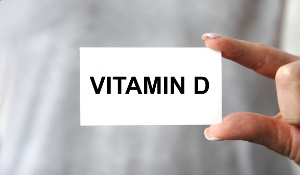 At northern latitudes, our body can only produce
At northern latitudes, our body can only produce 
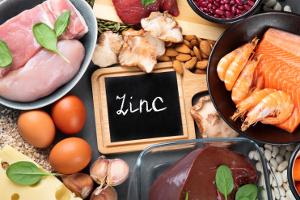


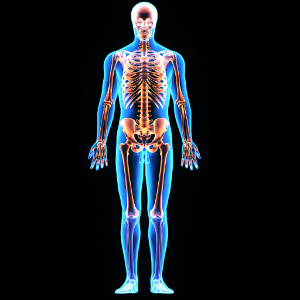
 There are several possible causes of male impotence, and the risk increases with age. Oxidative stress appears to play a role, as this condition contributes to local atherosclerosis, which restricts blood flow to the penis. However, consuming a variety of antioxidants - such as
There are several possible causes of male impotence, and the risk increases with age. Oxidative stress appears to play a role, as this condition contributes to local atherosclerosis, which restricts blood flow to the penis. However, consuming a variety of antioxidants - such as 

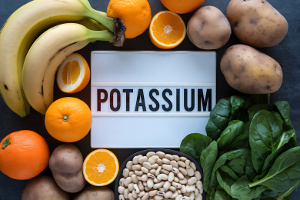 High blood pressure is the primary cause of cardiovascular diseases, strokes, and early death. There has primarily been focus on limiting salt (sodium) intake, but now it appears that the balance between
High blood pressure is the primary cause of cardiovascular diseases, strokes, and early death. There has primarily been focus on limiting salt (sodium) intake, but now it appears that the balance between 